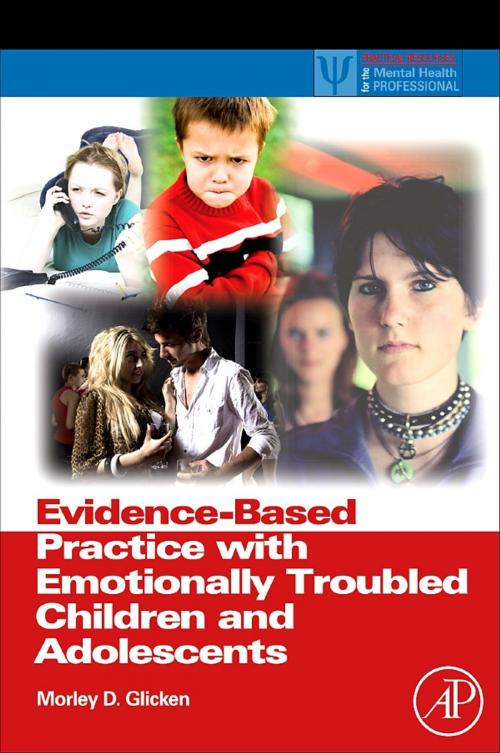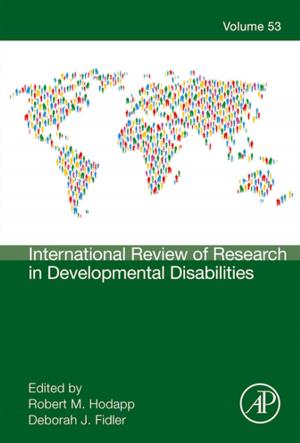Evidence-Based Practice with Emotionally Troubled Children and Adolescents
Nonfiction, Health & Well Being, Psychology, Counselling, Clinical Psychology| Author: | Morley D. Glicken | ISBN: | 9780080923062 |
| Publisher: | Elsevier Science | Publication: | May 11, 2009 |
| Imprint: | Academic Press | Language: | English |
| Author: | Morley D. Glicken |
| ISBN: | 9780080923062 |
| Publisher: | Elsevier Science |
| Publication: | May 11, 2009 |
| Imprint: | Academic Press |
| Language: | English |
This book on evidence-based practice with children and adolescents focuses on best evidence regarding assessment, diagnosis, and treatment of children and adolescents with a range of emotional problems including ADHD; Bi-Polar Disorder; anxiety and depression; eating disorders; Autism; Asperger’s Syndrome; substance abuse; loneliness and social isolation; school related problems including underachievement; sexual acting out; Oppositional Defiant and Conduct Disorders; Childhood Schizophrenia; gender issues; prolonged grief; school violence; cyber bullying; gang involvement, and a number of other problems experienced by children and adolescents.
The psychosocial interventions discussed in the book provide practitioners and educators with a range of effective treatments that serve as an alternative to the use of unproven medications with unknown but potentially harmful side effects. Interesting case studies demonstrating the use of evidence-based practice with a number of common childhood disorders and integrative questions at the end of each chapter make this book uniquely helpful to graduate and undergraduate courses in social work, counseling, psychology, guidance, behavioral classroom teaching, and psychiatric nursing.
- Fully covers assessment, diagnosis & treatment of children and adolescents, focusing on evidence-based practices
- Offers detailed how-to explanation of practical evidence-based treatment techniques
- Cites numerous case studies and provides integrative questions at the end of each chapter
- Material related to diversity (including race, ethnicity, gender and social class) integrated into each chapter
This book on evidence-based practice with children and adolescents focuses on best evidence regarding assessment, diagnosis, and treatment of children and adolescents with a range of emotional problems including ADHD; Bi-Polar Disorder; anxiety and depression; eating disorders; Autism; Asperger’s Syndrome; substance abuse; loneliness and social isolation; school related problems including underachievement; sexual acting out; Oppositional Defiant and Conduct Disorders; Childhood Schizophrenia; gender issues; prolonged grief; school violence; cyber bullying; gang involvement, and a number of other problems experienced by children and adolescents.
The psychosocial interventions discussed in the book provide practitioners and educators with a range of effective treatments that serve as an alternative to the use of unproven medications with unknown but potentially harmful side effects. Interesting case studies demonstrating the use of evidence-based practice with a number of common childhood disorders and integrative questions at the end of each chapter make this book uniquely helpful to graduate and undergraduate courses in social work, counseling, psychology, guidance, behavioral classroom teaching, and psychiatric nursing.
- Fully covers assessment, diagnosis & treatment of children and adolescents, focusing on evidence-based practices
- Offers detailed how-to explanation of practical evidence-based treatment techniques
- Cites numerous case studies and provides integrative questions at the end of each chapter
- Material related to diversity (including race, ethnicity, gender and social class) integrated into each chapter















